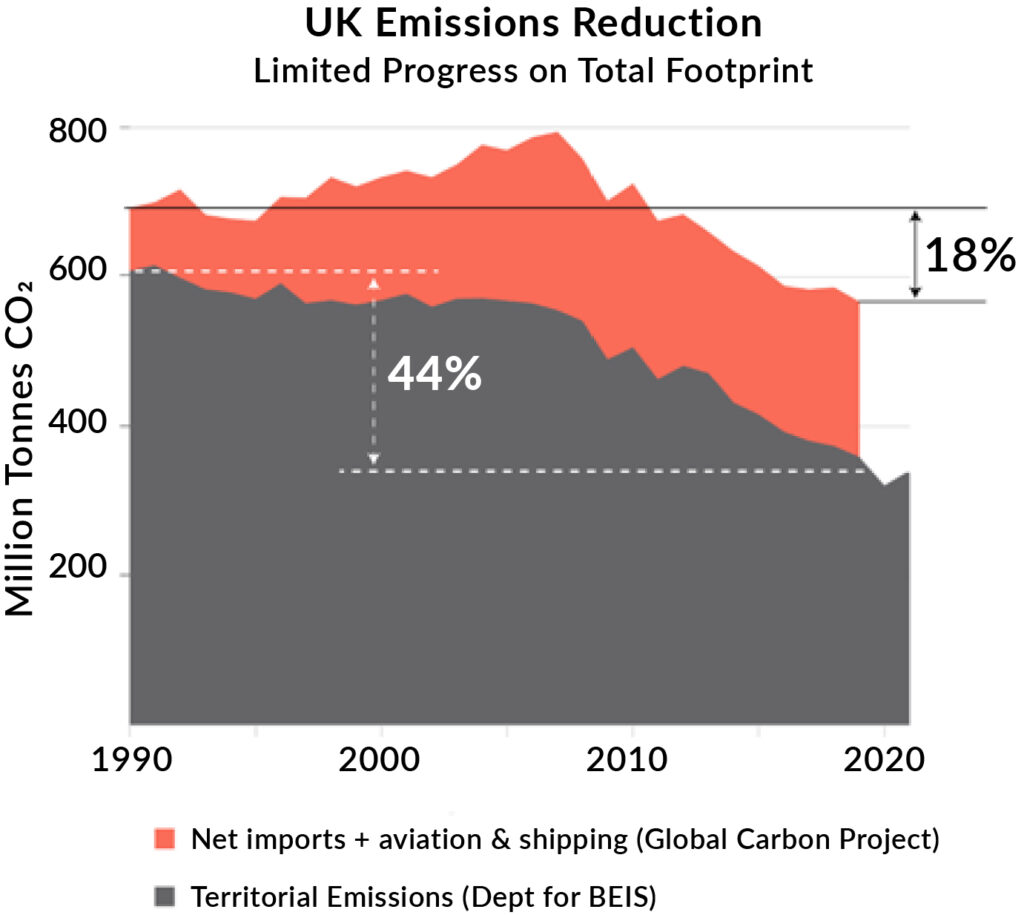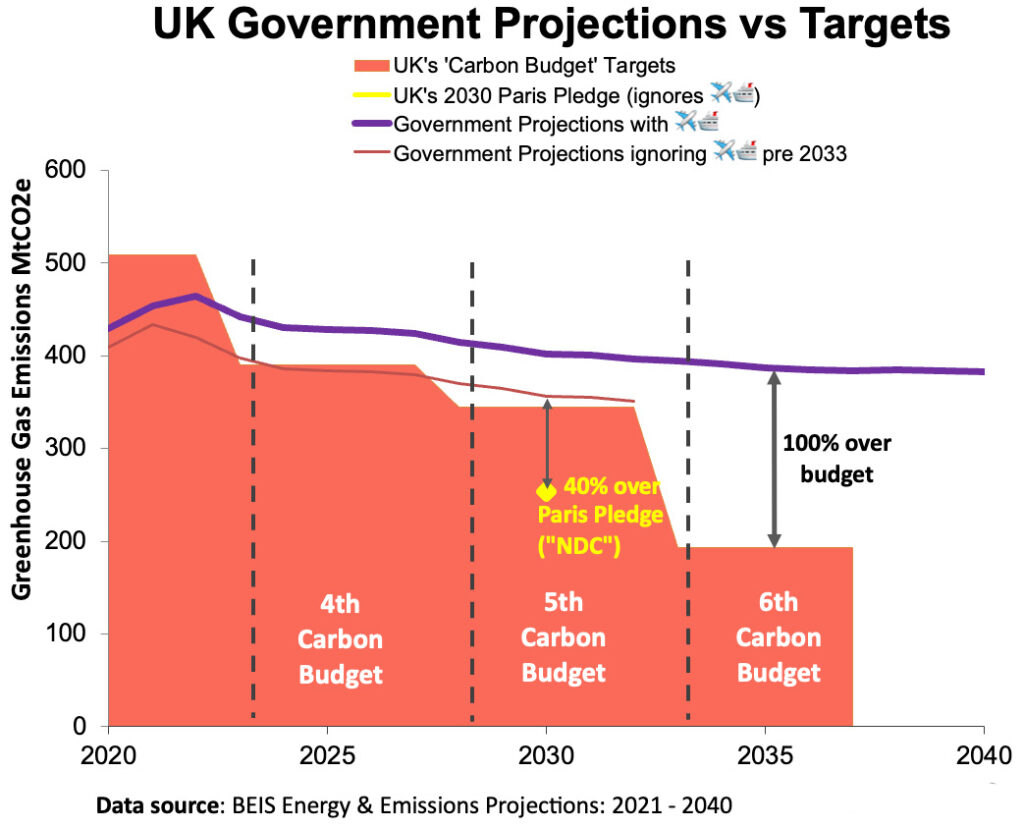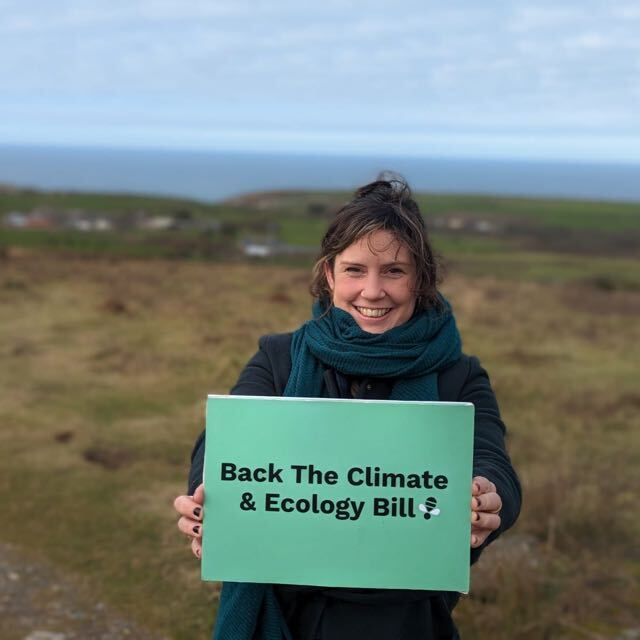On October 27th the UN published its latest assessment on the state of the climate: The Emissions Gap Report: The Closing Window. It was also the closing date for submissions to the Governments call for evidence for a review of its own Net Zero Strategy.
On July 18th this year, the high court ruled the UK’s Net Zero Strategy ‘unlawful’, because it “doesn’t meet the government’s obligations under the Climate Change Act to produce detailed climate policies that show how the UK’s legally-binding carbon budgets will be met.”
Our director, Dr Amy MacDonnell, submitted evidence to Chris Skidmore, the MP overseeing the Net Zero Review, urging him to listen to the scientific consensus on the state of the climate and to support the passage of the CAN Bill through Parliament:
“Our central proposal is this: as part of your Net Zero Review, we hope that you will be assessing, in light of the latest scientific evidence, whether the UK’s plans are consistent with its stated goal of limiting warming to 1.5°C—and how new, science-led legislation in the form of the Climate & Ecology Bill can help to bridge the gap between current delivery and the ambition required to meet the UK’s Paris Agreement obligations.
Our latest report, Net Zero: The Ambition Gap, which we recently launched in the House of Commons, is a guide to the relevant science on this issue, and we trust it will be of use in your Review.”
The UN’s latest, extremely bleak, assessment is that there is ‘no credible pathway to 1.5°C in place’ and that the only way to avoid catastrophic impacts of climate breakdown is the “rapid transformation of societies”. This does not mean that there is absolutely no hope of keeping 1.5°C alive. It means that because we have now left it so late to act, that the only way to limit dangerous global warming is to completely transform our economy and way of life.
The UK and other developed nations are not being honest about how much progress has been made and our Net Zero Review submission makes clear that the UK’s Net Zero Strategy falls significantly short of what’s required for 1.5°C. The graph below shows that Government’s assertion that we are making good progress is false. The published figure of 44% reduction is just for emissions occurring within the UK. This is a great achievement but when we consider our entire footprint, including emissions on all of our imports, the reduction is only 18%.

The projections published by the IPCC on October 24th are even more worrying. The UK is set to overshoot our 2030 Paris agreement emissions commitment by 40% and blow our 6th carbon budget by a huge 100%

Key to our submission is the fact that the UK Net Zero Strategy barely mentions nature but COP26 recognised that “we can’t solve the climate crisis without nature”. This is because cutting emissions alone isn’t enough to limit warming to 1.5°C. We need nature to absorb CO2 and protect against the worst climate impacts such as flooding and drought. So we must prioritise the restoration of nature equally with cutting emissions. Conservation approaches to restoration have failed overall, leaving us in a state of ‘managed decline’, with many of our natural carbon stores such as peatlands and wetlands becoming sources of CO2. The first report from the Office for Environmental Protection confirms this.
We must transform the food industry if we are to restore ecosystems sufficiently to help mitigate and adapt to climate change—it is high in emissions and responsible for the majority of the destruction to nature. New research from WRAP shows that the food industry is responsible for 35% of emissions, including our imports, putting it on equal footing with the fossil fuel sector because it also threatens critical carbon stores, in the UK and globally.
There is no shortage of solutions that can also bring great opportunities. The Committee on Climate Change and the National Food Strategy recommended that we reduce UK meat consumption by 20%-30% by 2030. A rapid reduction in livestock farming will deliver two key outcomes: (1) lower emissions, and (2) free up of large areas of land to restore critical ecosystems that absorb carbon, effectively ‘doubling the carbon dividend’. This will:
- Reduce greenhouse gases—including methane (highlighted by the IPCC as critical) and nitrous oxide, as well as the carbon associated with animal feed production, which could buy us time to decarbonise the rest of the economy, and
- Free up land for nature—livestock dominates agricultural land use, and shifting to a more plant-based diet in the UK could save an area almost the size of Scotland.
Restored ecosystems would absorb carbon dioxide, doubling the benefit from emission reductions in the food system alone. This would also boost local economies by shortening supply lines, with local producers increasingly supplying local people. Analysis from Sustain shows this could create as many as 200,000 new jobs.
Switching to a diverse, plant-rich diet will have the added benefit of improving the nation’s health, slashing the cost of dietary diseases to the NHS. The Zoe Health Study found that it boosts the immune system, guarding against diseases such as Covid-19. Becoming less dependent on meat will also reduce the overall risk of antimicrobial resistance caused by overuse of antibiotics in livestock production.
We really have no time to waste and we have everything to gain by acting boldly and urgently to secure a liveable future. We are keen to work with the Government to help provide solutions to the gap between delivery and ambition on climate and nature.


